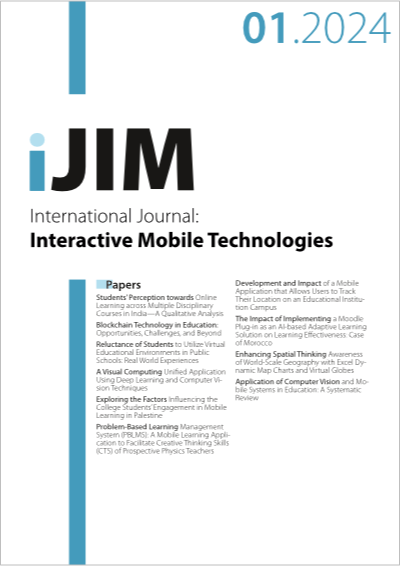Blockchain Technology in Education: Opportunities, Challenges, and Beyond
DOI:
https://doi.org/10.3991/ijim.v18i01.46307Keywords:
blockchain, educational technology, emerging technology, digital, bibliometricAbstract
Blockchain technology has gained significant attention for its decentralized, secure, transparent, and immutable characteristics. It has been adopted in various domains, including the financial and education sectors. This systematic review provides a comprehensive analysis of the opportunities, challenges, and future educational prospects of blockchain technology by examining published research from various disciplines. A bibliometric approach was adopted using R Studio. Datasets were sourced from the Scopus database, which included Scopusindexed articles from 2018 to 2022. The keywords “blockchain” and “education” were used to retrieve relevant articles. Specific criteria were applied to filter the literature sources, ensuring that our discussions focused on the applications and challenges of blockchain technology in education. We only considered articles written in English, specifically those published in proceedings and journals. The review identified that blockchain technology has the potential to transform education by enhancing data security, facilitating efficient verification and credentialing processes, and enabling peer-to-peer transactions. However, addressing challenges such as adoption, technical expertise, data privacy, security, and standardization is crucial. Therefore, the study concludes that implementing blockchain technology in education can yield significant benefits for future generations. These benefits include reducing the gap in global education and increasing transparency and accountability in the education sector.
Downloads
Published
How to Cite
Issue
Section
License
Copyright (c) 2023 Agariadne Dwinggo Samala, David Mhlanga, Ljubisa Bojic, Natalie-Jane Howard, Diogo Pereira Coelho

This work is licensed under a Creative Commons Attribution 4.0 International License.



